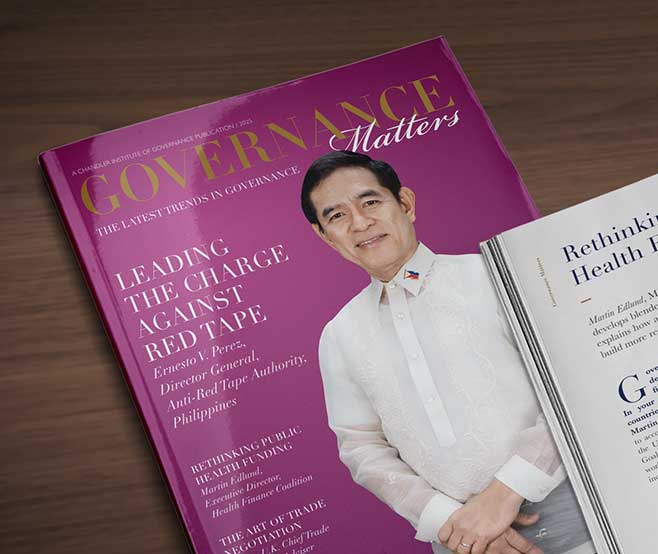Knowledge Exchange in the Era of Digital Government
In an era of increasingly complex governance challenges, governments have more to learn from each other than ever. After Uzbekistan hosted the United Nations Public Service Forum (UNPSF) in Samarkand, in June 2025, Governance Matters spoke to Asror Mukhitdinov, Deputy Director of the Agency for Governance Efficiency under the President of Uzbekistan, to hear how the events like the UNPSF can help governments build modern, inclusive, and sustainable public services in the digital era.
Lorem ipsum dolor sit amet, consectetur adipiscing elit, sed do eiusmod tempor incididunt ut labore et dolore magna aliqua. Ut enim ad minim veniam, quis nostrud exercitation ullamco laboris nisi ut aliquip ex ea commodo consequat. Duis aute irure dolor in reprehenderit in voluptate velit esse cillum dolore eu fugiat nulla pariatur.
Heading 1
Heading 2
Heading 3
Heading 4
Heading 5
Heading 6
Lorem ipsum dolor sit amet, consectetur adipiscing elit, sed do eiusmod tempor incididunt ut labore et dolore magna aliqua. Ut enim ad minim veniam, quis nostrud exercitation ullamco laboris nisi ut aliquip ex ea commodo consequat. Duis aute irure dolor in reprehenderit in voluptate velit esse cillum dolore eu fugiat nulla pariatur.
Block quote
Heading 6
Ordered list
- Item 1
- Item 2
- Item 3
Unordered list
- Item A
- Item B
- Item C
Bold text
Emphasis
Superscript
Subscript
Governance Matters: What was the shared vision behind this year’s UNPSF, and how did Uzbekistan see its role in advancing that vision?
Asror Mukhitdinov: The 2025 UNPSF put forward a shared vision of modernising public governance by promoting digital transformation, strengthening last-mile service delivery, accelerating innovation in the public sector, and promoting global collaboration. In particular, discussions at the Forum focused on the need for governments to adopt a citizens-first mindset which leaves no one behind.
Uzbekistan has made significant reforms aimed towards achieving UNPSF’s vision and building a “New Uzbekistan” under President Shavkat Mirziyoyev. The vision for those reforms is based on the central principle of the state serving the people.
Over the past few years, we have implemented digital transformation across several important areas in the public sector. Those reform efforts have attracted international recognition. Last year, Uzbekistan was placed among countries with a “very high” level of digital development in the UN E-Government Development Index. In the GovTech Maturity Index, Uzbekistan rose 37 spots and entered the “A” category. Hosting the UNPSF showcases the country’s progress in creating an effective, inclusive, and accountable public service through innovation and digital technologies.
The civil service is the engine of these reforms. The Agency for Governance Efficiency under the President of Uzbekistan plays an active role in the digitalisation of the civil service where reform decisions are informed by scientific data. We have introduced training and professional development programmes to equip our civil servants with the necessary skills and knowledge. Furthermore, we have adapted international best practices learned from platforms such as the UNPSF to the national governance context. The Forum’s international dialogue, knowledge exchange, and peer learning opportunities are very important for deepening reforms, developing human capital, and laying the foundations for new public sector initiatives.
How has the Forum’s role in promoting knowledge exchange between governments led to measurable outcomes on the ground?
One concrete outcome from this year’s Forum was the Samarkand Ministerial Declaration, which set out commitments by participating governments to strengthen international cooperation and develop joint approaches to complex governance challenges. Another outcome was the plan for a new global programme to promote and share GovTech solutions, knowledge, and experts among countries.
The Forum is also a catalyst for political initiatives, joint programmes, and innovative solutions. Participants discuss global practices in education, digitalisation, transparency, anti-corruption, and capacity building. This meeting of minds could lead to new initiatives – applying artificial intelligence (AI) to analyse and respond to citizens’ needs more effectively as well as joint research, pilot projects, and knowledge hubs.
What approaches and practices do you believe are most effective in enabling peer-to-peer learning between countries with differing development contexts and public administration systems?
Effective peer learning is characterised by collaboration, mutual respect, open dialogue, and partnerships that produce measurable results. Done well, it allows us to tailor public services more closely to citizens’ needs and implement reforms more swiftly and effectively. Best practices should not be copied blindly. They should be adapted to meet a country’s social, political, and economic realities. It is not feasible to fully replicate Estonia’s or Singapore’s digital government models in Uzbekistan, but selectively adapting certain mechanisms within their frameworks can nonetheless yield effective outcomes.
One practical method of peer-to-peer learning is through training seminars, regional exchanges, or joint site visits to service centres where countries can observe and analyse real work processes. Peer learning should not be one-directional. Both developed and developing countries have insights to offer, and such mutual partnerships would lead to institutional capacity building for all participants. I also believe in employing case studies and simulation methods to work on solutions jointly and build participants’ skills in problem solving.
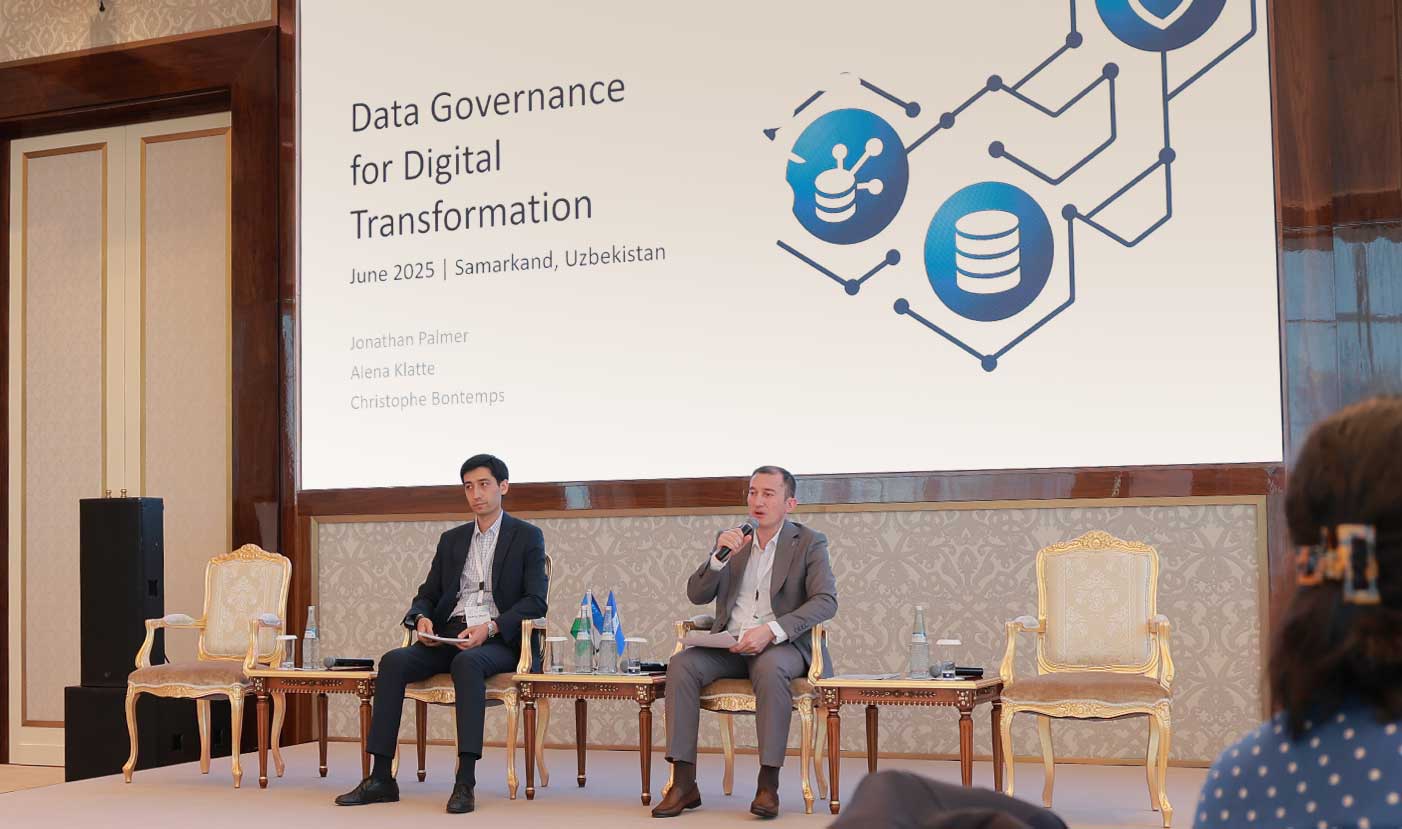
The United Nations Department of Economic and Social Affairs (UN DESA)’s E-Government Survey 2024, which measures national progress in digital governance, was a subject of discussion at this year’s forum. How do platforms such as the UNPSF help to promote knowledge sharing to accelerate the use of emerging technologies in public administration?
The 2024 UN DESA E-Government Development Index is a study on the evolution of international practices in digital transformation, AI, big data, blockchain, and citizen-centred public service models. Based on the study, participants at the Forum discussed concepts such as digital government maturity, interoperability frameworks between information systems, and the citizen-centric design of services. In this sense, the Forum is more than a knowledge exchange venue. It is a strategic dialogue platform for institutionalising digital innovation and forming human-centred, transparent, and effective governance models.
Would you identify any other specific public service delivery areas where knowledge sharing between countries has been especially effective in leading to concrete outcomes?
One clear example is Estonia’s highly successful digital government model. Countries such as South Korea and China have studied and partially adopted the model in their e-government strategies. Similarly, the development of Uzbekistan’s Unified Interactive Public Services Portal (my.gov.uz) has benefited significantly from studying models in Singapore and Georgia. Such collaborations often involve benchmarking – identifying public service performance standards, and policy transfer – and adapting solutions to local contexts.
How have forums like the UNPSF become more accessible and inclusive, particularly for countries that may face resource constraints in participating? What are some other challenges facing such platforms and convenings today?
This is a highly relevant and important question. The value of global platforms like the UNPSF lies in their inclusiveness not only for developed countries but also for developing and resource-constrained nations. It is core principle of leaving no one behind captures this inclusive mindset. The Forum puts this principle into action through mechanisms such as travel subsidies, grants for delegates from developing nations, and access to virtual platforms.
Equally important is the inclusion of capacity-building initiatives such as training programmes, technical workshops, and regional collaboration efforts that provide concrete and targeted support to governments. These initiatives empower countries with limited financial and human resources to adopt and tailor international reform strategies to their specific needs.
Still, certain challenges remain. Those include infrastructure gaps in some countries where weak digital infrastructure limits their ability to participate online. In some cases, countries struggle to prepare relevant national materials or send properly formed delegations. And in some nations, innovation in public service is not seen as a top priority.
Despite this, recent years have seen a shift towards hybrid event formats, promoted by the UN and other global organisations. Countries that are geographically or economically constrained are able to participate in such events.
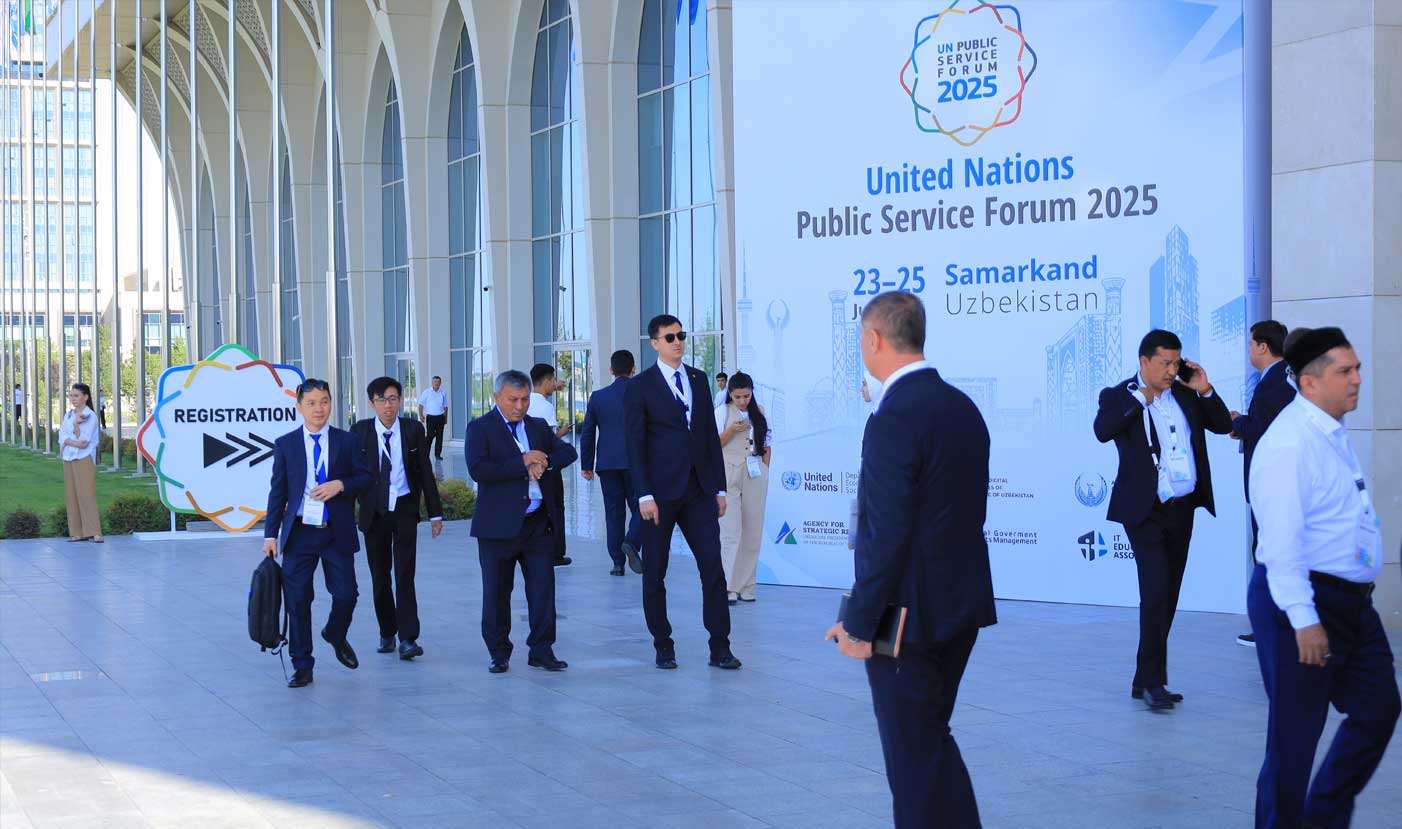
As organisers, did any specific insights or moments from this year’s forum stand out to you? What do you hope participants will take away from the experience?
The 2025 forum in Samarkand was a milestone for Uzbekistan and for the entire Central Asian region.
We had a rich dialogue spanning diverse governance models, cultures, and political systems. From Africa to Latin America, delegates were committed to a common goal of improving service quality and efficiency for citizens.
Another memorable moment was the session for young professionals, which was vibrant and engaging. Young civil servants from various countries presented innovative ideas related to digital solutions, civic participation, and transparency. It highlighted both the potential and responsibility of the next generation of civil servants.
What I hope participants take away is a deep understanding of the value of collaboration and the ability to adapt best practices to their national systems. Beyond technical knowledge, I believe they also carry home the universal values of humanity in service, dedication, and a commitment to openness.

Heading 1
Heading 2
Heading 3
Heading 4
Heading 5
Heading 6
Lorem ipsum dolor sit amet, consectetur adipiscing elit, sed do eiusmod tempor incididunt ut labore et dolore magna aliqua. Ut enim ad minim veniam, quis nostrud exercitation ullamco laboris nisi ut aliquip ex ea commodo consequat. Duis aute irure dolor in reprehenderit in voluptate velit esse cillum dolore eu fugiat nulla pariatur.
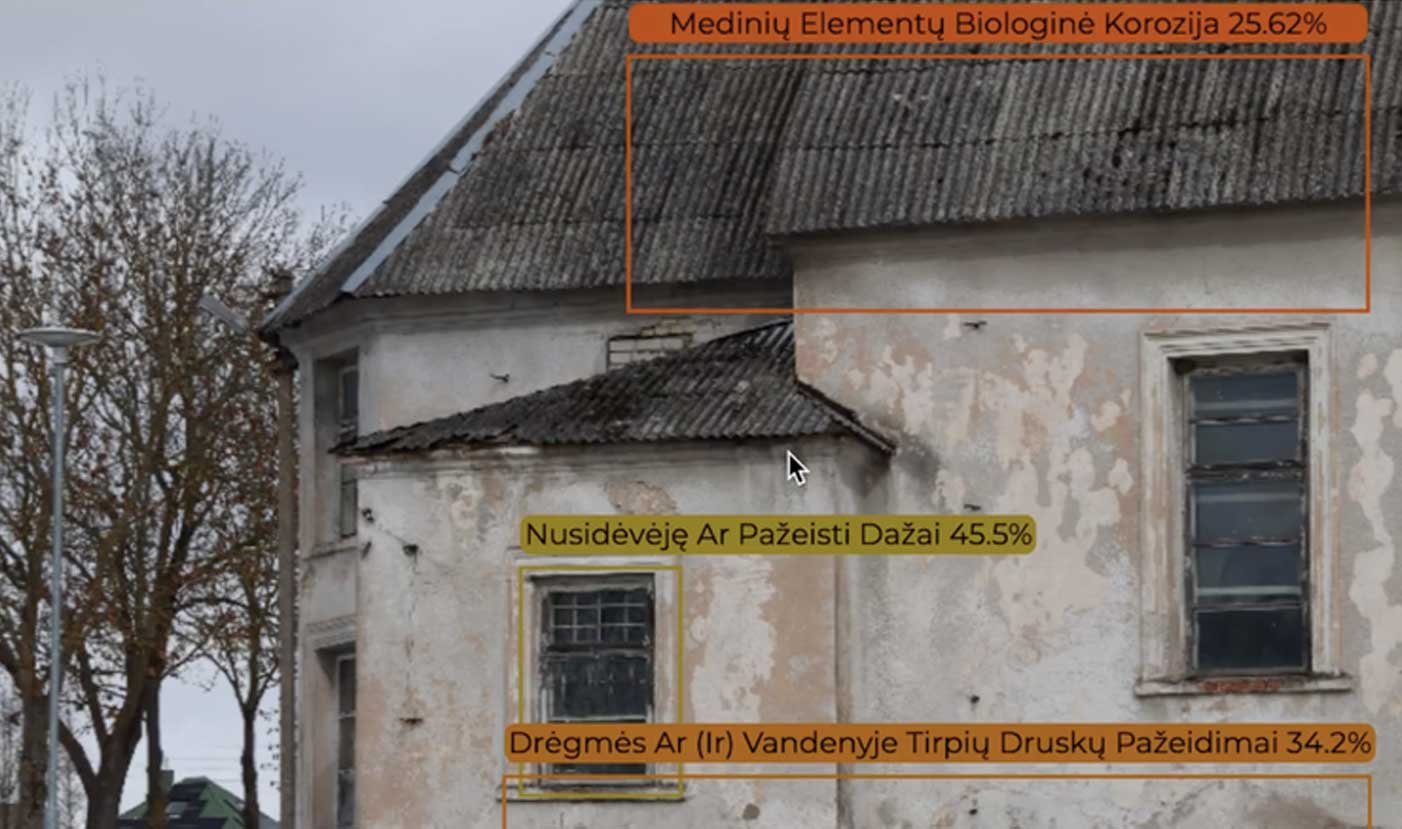
Block quote
Ordered list
- Item 1
- Item 2
- Item 3
Unordered list
- Item A
- Item B
- Item C
Bold text
Emphasis
Superscript
Subscript
Lorem ipsum dolor sit amet, consectetur adipiscing elit, sed do eiusmod tempor incididunt ut labore et dolore magna aliqua. Ut enim ad minim veniam, quis nostrud exercitation ullamco laboris nisi ut aliquip ex ea commodo consequat. Duis aute irure dolor in reprehenderit in voluptate velit esse cillum dolore eu fugiat nulla pariatur.
Endnotes
- Item 1
- Item 2
- Item 3

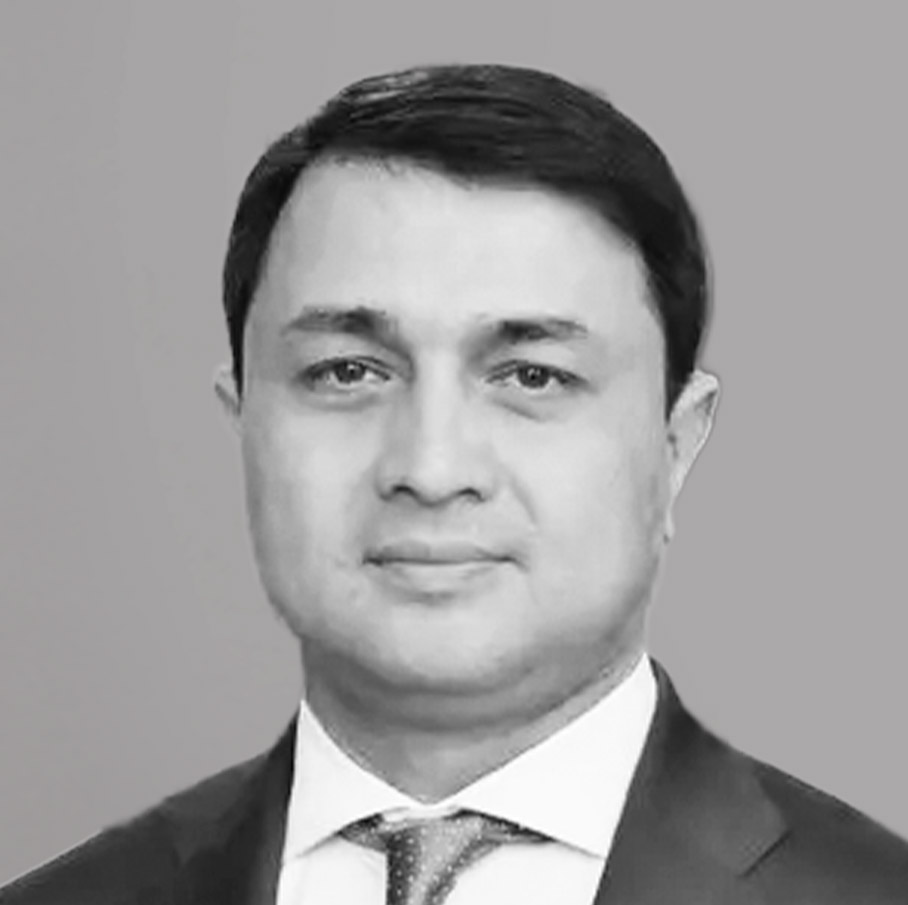
Asror Mukhitdinov currently serves as Deputy Director of the Agency for Governance Efficiency (formerly the Agency for the Development of Public Service under the President of the Republic of Uzbekistan, ARGOS). In this role, he helps to lead the agency’s work in reforming the civil service system, focusing on recruitment, training, and career development for public employees.
Lorem ipsum dolor sit amet, consectetur adipiscing elit, sed do eiusmod tempor incididunt ut labore et dolore magna aliqua. Ut enim ad minim veniam, quis nostrud exercitation ullamco laboris nisi ut aliquip ex ea commodo consequat. Duis aute irure dolor in reprehenderit in voluptate velit esse cillum dolore eu fugiat nulla pariatur.






